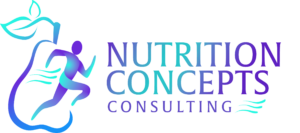Essential Nutrition for the Geriatric Population
Proper nutrition is vital for maintaining health and well-being in the geriatric population. As people age, their nutritional needs change, and addressing these needs can help prevent chronic diseases, boost immunity, and enhance quality of life.
Nutritional Needs of the Elderly
- Increased Need for Certain Vitamins and Minerals: Older adults often require higher levels of vitamins and minerals to maintain health. Vitamin D and calcium are crucial for bone health, while vitamin B12 supports nerve function and red blood cell production.
- Protein Requirements: Adequate protein intake is essential for preserving muscle mass and strength, which can decline with age.
- Hydration Importance: Seniors are more susceptible to dehydration due to reduced thirst sensation, making it essential to encourage regular fluid intake.
Common Nutritional Challenges
- Reduced Appetite and Taste Changes: Aging can lead to a diminished sense of taste and smell, reducing appetite and interest in food.
- Dental Issues and Difficulty Swallowing: Problems with teeth, gums, or swallowing can make eating certain foods challenging, leading to nutritional deficiencies.
- Chronic Conditions and Medication Interactions: Chronic illnesses and the medications used to treat them can affect appetite, nutrient absorption, and overall nutritional status.
Key Nutrients for Geriatric Health
- Vitamins and Minerals:
- Vitamin D and Calcium: Essential for maintaining bone density and preventing osteoporosis.
- Vitamin B12: Supports brain function and energy levels.
- Magnesium: Important for muscle and nerve function.
- Protein and Muscle Maintenance: Lean meats, fish, beans, and legumes help preserve muscle mass and strength.
- Fiber for Digestive Health: Whole grains, fruits, and vegetables aid in digestion and prevent constipation, a common issue among older adults.
Healthy Eating Tips for Seniors
- Balanced Diet and Portion Control: Eating a variety of nutrient-dense foods in appropriate portions ensures balanced nutrition without overeating.
- Meal Planning and Nutrient-Dense Foods: Planning meals that include a balance of protein, healthy fats, and carbohydrates can help meet nutritional needs.
- Staying Hydrated: Drinking water regularly and including hydrating foods like fruits and vegetables can prevent dehydration.
Foods to Include
- Fruits and Vegetables: Provide essential vitamins, minerals, and fiber.
- Lean Proteins and Whole Grains: Support muscle maintenance and energy levels.
- Dairy or Fortified Alternatives: Ensure adequate intake of calcium and vitamin D.
Foods to Limit
- Processed Foods and High-Sodium Items: Can lead to high blood pressure and other health issues.
- Sugary Snacks and Beverages: Contribute to weight gain and poor blood sugar control.
- Excessive Alcohol: Can interfere with medications and overall health.
Nutrition is a cornerstone of health for the geriatric population. By focusing on a balanced diet rich in essential nutrients and addressing common nutritional challenges, older adults can enhance their well-being and maintain a higher quality of life. Personalized dietary advice from healthcare professionals can further optimize health outcomes for seniors.
